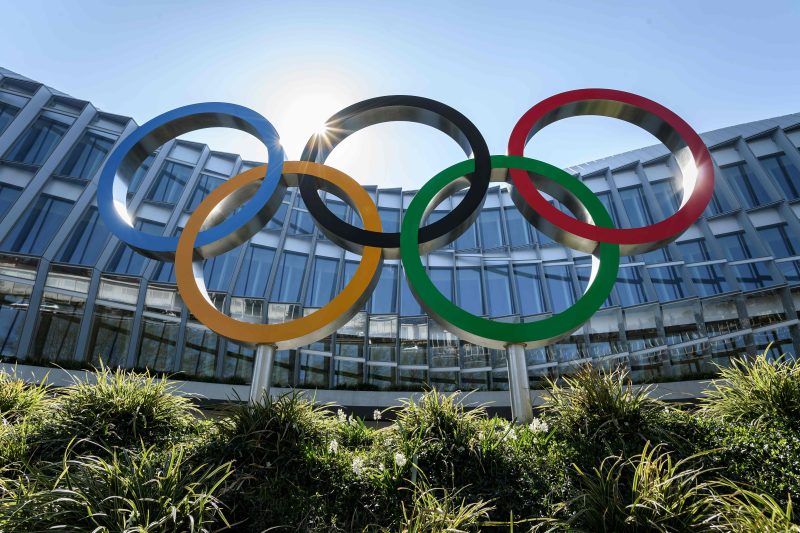When lacrosse makes its return to the Olympic program at the 2028 Los Angeles Games, a team of Native American athletes representing the sport’s birthplace, the Haudenosaunee Confederacy, hope to be competing under their own flag.
In their quest to turn that goal into reality, they now have an influential new advocate: President Joe Biden.
Biden announced his support of the Haudenosaunee’s Olympic efforts during a speech at the White House Tribal Nations Summit on Wednesday afternoon − providing a public boost to Native American leaders and the sport’s governing body, World Lacrosse, as they pursue inclusion at the 2028 Games.
Specifically, the White House said, Biden is seeking a ‘narrowly-scoped exception’ to Olympic rules that would allow the Haudenosaunee to field a team.
‘Their ancestors invented the game,’ Biden said. ‘They perfected it for millennia. Their circumstances are unique. And they should be granted an exception to field their own team at the Olympics.’
Leo Nolan, the executive director of the Haudenosaunee national team, said he is ‘sincerely grateful’ to Biden for his public support, describing it as a clear sign that the White House ‘(understands) our contribution that we made to spreading the sport around the world.’
But he also acknowledged that any decision on their inclusion in 2028 ultimately rests with the International Olympic Committee, which has repeatedly cited a clause in the Olympic charter that allows only countries with national Olympic committees to compete at the Summer Games.
‘The IOC is the ultimate decider on this. We respect that,’ Nolan told USA TODAY Sports in an interview. ‘We respect the Olympic framework of sports competition, and I think it’s a great opportunity for the Olympics to really step up and say this is a recognized sport that is now around the world thanks to the Haudenosaunee, (because of) their contribution to the game of lacrosse.’
In response to a series of emailed questions Tuesday night about the Haudenosaunee Confederacy − previously known as the Iroquois Confederacy − fielding a team at the Olympics, an IOC spokesperson said it would be up to the U.S. Olympic and Paralympic Committee and Canadian Olympic Committee ‘to decide if they include athletes from Haudenosaunee in their respective teams, depending on the passport they hold.’
The potential inclusion of the Haudenosaunee is one of the more fascinating questions surrounding the 2028 Olympics, in part due to its complexity.
Lacrosse got its start as a sport played by Indigenous tribes in the northeastern part of North America in around 1100, hundreds of years before European settlement. The Haudenosaunee not only have a deep connection with the sport, sometimes referring to it as ‘the medicine game,’ but they are also fairly dominant in it on an international level.
The Haudenosaunee started competing internationally in 1990, when they were first recognized by World Lacrosse. They currently boast the No. 3 ranked men’s lacrosse team in the world, behind only the United States and Canada, and they won bronze at the most recent world championships earlier this summer.
‘Often times when we go to these international competitions, we are asked to really be the spokesperson for the game. That’s a really great honor,’ Nolan said.
So far, Nolan said World Lacrosse has been Haudenosaunee’s primary advocate in pursuing Olympic inclusion, with its chief executive officer, Jim Scherr, saying in October that they would continue to look for ‘a creative solution’ that would allow the Haudenosaunee to compete at the Games. It is immediately unclear, however, what that solution would entail or what steps would be needed for the IOC to sign off.
Asked if support from entities like the White House might ultimately prove to be symbolic, Nolan stressed that symbolism ‘is a strong way of doing business sometimes.’
‘It sounds symbolic, but in reality, is it a symbol or is it really the right thing to do − to include the originators of the game in a way that honors the IOC framework,’ he said. ‘We’re looking forward to figuring out what those pathways will be.’
Contact Tom Schad at tschad@usatoday.com or on social media @Tom_Schad.

